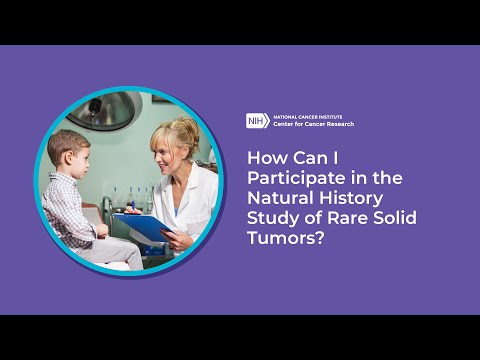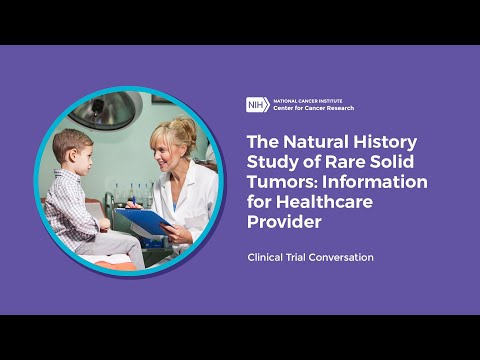What is a natural history study?
The purpose of a natural history study is to collect information, tissue and tumor samples, and data from patients to better understand how cancer develops and grows. When researchers don’t know how cancer grows, it is much harder to design trials to test new treatments. Natural history studies help researchers understand cancer better.
In a natural history study, you will meet experts who often have more experience with rare cancer than your home medical team. These experts can advise you on treatments for your cancer. Also, detailed analysis of your cancer in the natural history study may point to treatment trials that you may be eligible for.
By taking part in a natural history study, you can speed up the development of new treatments by giving researchers the tools they need to understand how cancer forms and grows, and to find new treatments. Researchers use natural history studies to look for trends and get new ideas on how to treat rare cancers.
Unlike treatment trials, natural history studies don’t test whether new treatments work and are safe. Because you are not exposed to any experimental treatment, natural history studies are considered very safe.
What is the Natural History Study of Rare Solid Tumors?
The Natural History Study of Rare Solid Tumors is a natural history trial taking place at the NIH Clinical Center in Bethesda, Maryland. The purpose of the trial is to collect information and samples from people with rare tumors and their relatives, and track their health history over a long period of time.
During this trial, we hope to learn more about how rare tumors develop and progress and new ways to control them.
Learn more about the Natural History Study of Rare Solid Tumors by viewing this infographic.
How You Can Take Part in Our Study
Any person who has been diagnosed with a rare solid tumor, regardless of their age, is able to join the study. Family members of people diagnosed with a rare solid tumor are also able to join the study.
The Natural History Study of Rare Solid Tumors is enrolling people in two ways.
At first, you will provide information and a saliva sample from home. We will also request your medical records from your doctor and any samples of your cancer that may be available from a prior biopsy or surgery. Then, we will review your information and combine it with information from other patients to get a clearer understanding of your cancer. We will keep in touch with you to learn more about how you are doing and to let you know what we are learning about rare cancer.
Based on the review of your medical records, you might be invited to the NIH Clinical Center, where you will meet with a team of expert doctors and other healthcare providers. They will run more detailed tests on your cancer and can answer any questions related to your treatment.
Can I still get treatment for my rare cancer?
Yes, you can receive treatment for your cancer while in the natural history study. You can have standard treatment or take part in a treatment trial. We are partnering with researchers who are running treatment trials that accept rare cancer patients. If you are eligible, we will help you join these trials. We will also let you know if a new trial opens that may be right for you.
How can I get more information or join the study?
To join the study, please fill out this form and provide basic information about your or your child's diagnosis and medical history. Our staff will contact you to provide you with more information and enroll you on the study if you choose to participate.
For specific questions about our Natural History Study of Rare Solid Tumors, email NCICCRRareTumorClinic@mail.nih.gov. You can also see our Contact Us for other ways to find out information or join to a clinical trial.
Eligibility criteria and other details are available in the study’s protocol summary.



